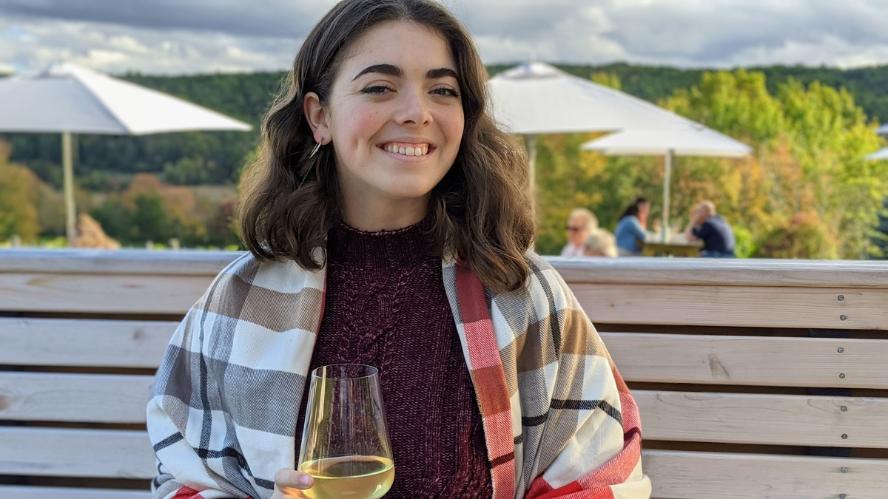Grace McNutt MA’20

April 2021
Grace McNutt MA’20
Halifax, NS
“I was very honoured to be valedictorian. It was nice to be given the opportunity to share my thoughts and speak on behalf of the class of 2020.”
What was it like graduating during the COVID-19 pandemic? How did COVID-19 impact your education?
It was definitely interesting during COVID-19. I was probably a lot more fortunate than other grads. By the time it reached the period where we weren’t able to go to school, I was finished my course work and already writing my thesis. It was hard not to go to my office on Gorsebrook and switch to writing my thesis in my childhood bedroom at home. As for graduation, it was strange not getting to walk across the stage. It was a bit of a disappointment, but I was happy regardless.
How did it feel to be valedictorian at your graduation?
I was very honoured to be valedictorian. It was nice to be given the opportunity to share my thoughts and speak on behalf of the class of 2020. Also, it gave me the chance to wear a cap and gown, which gave a sense of normalcy to graduation.
Since graduation, what have you been up to?
I have been doing a wide range of things. I started a new job working for Podstarter and it has been an interesting experience. I run my own podcast, Minute Women, which I started before the pandemic hit. It’s really fun doing that. I also curl at the Halifax Curling Club, which is one sporting outlet I can do during the pandemic. I have also been accepted to Dalhousie University to do my PhD in History.
Could you tell us about the Minute Women podcast?
I started the podcast in February 2020 with my friend Linnea Swinimer. The premise is that each week we take a different Canadian Heritage Minute and expand on it. Those events are significant and you can’t summarize why in sixty seconds. We research more about the person or event and add what was neglected or ignored. Each episode ends up being forty-five minutes to an hour. We tell the lesser-known stories in Canadian history. My education definitely helps me in the research. Also, my experience in academia has helped me with public speaking.
Why did you choose Saint Mary’s to get your Master of Arts in Atlantic Canada Studies?
First of all, I knew about the program because both of my parents are graduates of the program. So, you could say I’m a legacy child of the program. After getting my Bachelor of Arts Honours in History at Cape Breton University, I could have gone a couple of routes. I could have continued in history or taken a professional program. Then there was ACS, which is a wonderful blend of the two. It was an exciting opportunity to continue my history studies, write a thesis and focus on my passion for the region.
Recently you presented your thesis to the Royal Nova Scotia Historical Society, tell us about it.
It was great to dust off my thesis and present it again. My thesis is called Oppression in the Shadows: the Mi’kmaq of Nova Scotia and the Development of Indian Affairs, 1760-1950. In the broadest terms, it’s a political history comparing Nova Scotia to other areas in Canada. I became interested in the topic when noticing a vacuum of information. I began in a different field and kept coming across things and wondered, ‘I don’t know how this applied to Indigenous people.’ I discovered a gap in NS history, which I wanted to explore. I looked into how NS deployed its policies and compared that to what other provinces had done, and researched why policies were applied differently.
LinkedIn: https://www.linkedin.com/in/grace-mcnutt/
Twitter: @TheMinuteWomen
Instagram: @minutewomenpodcast